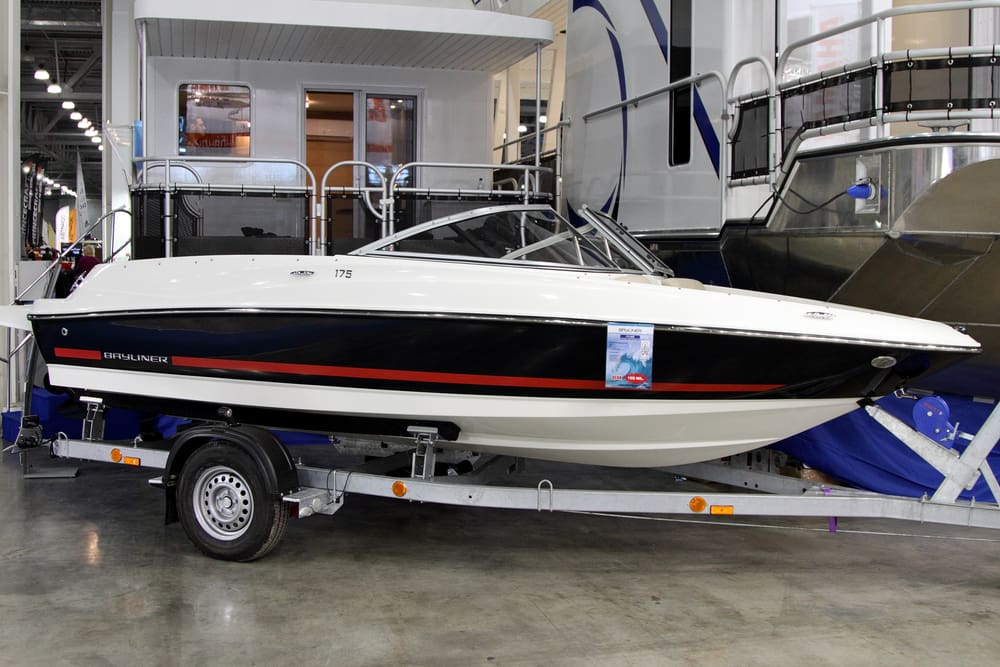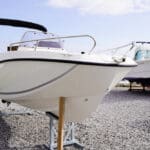The starting price of a boat is also the breaking point. You don’t want to overprice your vessel as the seller, nor do you want to overpay as the buyer. When deciding on the right price for a boat, it takes a little research on the make and model, as well as an inspection of the vessel. Today, you are going to learn how to find the right price when buying or selling a boat.
Looking at NADA Guidelines
Go online to the NADA database, where you can look up information on the make and model of nearly any kind of boat type available. You can also use the NADA Guide for Boats to check the impact accessories, electronics, and powerplants have on the price of the boat. You receive accurate information on the current low retail value, the average retail value, and the suggested listing price for boats, as well.
While the NADA database is not 100% accurate in its predictions—as there are some variables it can’t account for—you do get a decent starting point for pricing a boat.
Comparing Boat Sales Listings
Naming the true value of the boat is a balance between how much the seller is willing to drop the price to meet how much the buyer is willing to pay. Keep that in mind as you sort through listings on yacht broker sites and local ads. Online boat listings run higher than the typical asking price to make room for negotiations.
Looking at local ads can also help you see how the area where the boat is being sold can affect the value. Usually, boats that are being sold inland are at least 10% more than those moored in saltwater. When purchasing a boat that is located farther away from where you live, the seller may reduce their asking price by 10-15% to make it more tempting to you.
Overall, the goal of looking at internet listings from brokerages and local sources is to find a range of prices for a specific make and model. Once you have found the pricing range, you then need to consider the boat’s condition.
Conditions That Affect The Market Price
Pricing a boat relies on more than the make, model, and accessories included. The condition of the vessel influences the price much more than you might expect.
Mechanical Condition
When a boat has not been maintained or there is something wrong with the engine, the asking price should be much lower than what the NADA suggests. Few people are willing to purchase a boat that is not ready to be in the water. There are some buyers who would put in the work themselves in order to get a bigger, better vessel than what they could afford outright, but that means the seller must make the boat as tempting as possible. This means considering the time, effort, and expenditures involved with repairing a boat.
For the buyer, if the seller does not seem to care about the condition of the boat, it could mean that the seller has done very little to maintain the vessel. Neglect can cause a multitude of problems—some that make even a lower price the opposite of a bargain.
Boats should come with most of the repairs already done. If not, double the cost of repairs should be subtracted from the asking price.
Cosmetic Condition
Since boats are most often recreational, the look of the vessel is important. When a boat’s appearance is rough, the price tends to drop a third or a half of the original asking price.
Fortunately, cosmetic repairs are easy enough to make and do not cost too much. Sellers will often repair torn seat cushions and canvas for a minor investment then boost the asking price. Replacing a faded gel coat can also increase the value of a boat. Have a boat in like-new condition? The asking price can go beyond what the NADA suggests, as many buyers expect to pay more for a newer-looking boat.
Electronics
Unless the boat itself is barely used and as close to like-new as possible, electronics rarely contribute to a higher value. There are a couple of reasons for this. One, people have their own opinions about which brand of electronics is better than others. Next, technology tends to move faster than boats can keep up with. What was considered state-of-the-art two years ago may now be obsolete.
Therefore, you cannot add more to the price of a boat for upgraded electronics. Some buyers may be even more tempted if the seller says they will uninstall all electronics before turning over the boat. That ensures the buyer will be able to get the electronics they want without having to pay more.
Accessories
Don’t let the fact that electronics do next to nothing for the asking price get you down. If you are selling a boat, there is one place where you can tack on some extra money to the asking price and get away with it: accessories. Air-conditioning, kicker motors, and a windlass are all significant enough that they add value to the vessel. While you cannot ask as much as the initial price, you can factor in about half of the original price of the accessories into the boat’s asking price.
Let Us Help You Buy or Sell Your Boat
Hopefully, you now know how to find the right price when buying or selling a boat. Coming up with an asking price or offer for a boat takes a bit of research. Getting a boat at the right price may take a bit of searching and negotiating, but in the end, you should find something that suits your fancy.
Let us help you on your boating journey! Our team here at Yacht Brokers of Annapolis has plenty of experience helping people buy and sell their boats. Give us a call today at 410-206-2755 to schedule a consultation.





